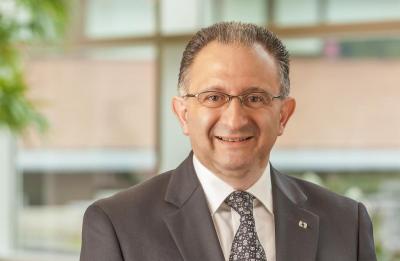Alcohol and the liver: How much is too much?

Many of us enjoy a drink now and then. In fact, more than two-thirds of Americans drink alcohol socially. And in most cases, drinking socially will not have a significant effect on your health. However, when drinking becomes habitual, the cumulative effects can take a toll on your body and cause serious, long-term complications.
Excessive alcohol consumption can lead to a severe form of liver disease called cirrhosis. It’s the 12th leading cause of death among all Americans and the fifth leading cause of death among those ages 45 to 54 years old. Cirrhosis also increases a person’s risk for developing liver cancer.
Cirrhosis is the most advanced form of alcoholic liver disease. The disease typically occurs in stages, beginning with fatty liver disease, then progressing to alcoholic hepatitis and then to alcoholic liver cirrhosis. However, not everyone will develop all stages of the disease.
A problem with your liver function can be determined with a simple blood test. If you suspect you or a loved one may have a drinking problem, don't wait. Get an evaluation. Early stages of the alcoholic liver disease typically do not have symptoms. Schedule an appointment by calling us at 800.922.0000.
I like to say that there is no safe amount of alcohol consumption to avoid liver disease because all alcohol is bad for the liver. The liver breaks down and removes toxins in the body, including alcohol. When you drink too much alcohol, it starts to impede this process. Healthy liver tissue is replaced with scar tissue, preventing your liver from functioning properly.

Your risk for developing liver disease increases greatly if you are a woman and consume 30 grams or more of hard alcohol daily over a course of five to 10 years or 50 grams or more daily if you are a man. That’s equivalent to about two and one-third shots of hard alcohol a day.
Liver disease can also develop in people who do not drink alcohol at all. People who are obese, have hepatitis B, hepatitis C or metabolic syndrome (a combination of conditions including obesity, high blood pressure, high blood sugar and unhealthy cholesterol) also have a higher risk of developing what is known as non-alcoholic fatty liver disease.
The most effective treatment for alcoholic liver disease is alcohol abstinence. Most people will need help with quitting or may even need to be admitted into the hospital to help them break their alcohol dependency. If found early enough, when fatty deposits can be found on the liver, you can reverse the disease. The problem is, most people will not develop symptoms until the disease has reached more advanced stages. Once you have developed scarring or the disease has progressed to cirrhosis, you cannot reverse or stop the scarring process.
At these advanced stages, our focus turns to treating the complications of serious liver disease, which in and of themselves, can be life-threatening. The three primary complications at this stage include: fluid retention in the legs and/or abdomen; increased blood pressure in the vein that travels through the liver (portal vein) called portal hypertension, which can also cause bleeding in the esophagus; and loss of brain function caused by the buildup of toxins in the blood, known as encephalopathy, resulting in insomnia, reversal of sleep pattern, confusion, inappropriate behavior and coma. Other common symptoms include itching, fatigue, jaundice and pain.
When treatments for these complications are no longer successful, you may be evaluated as a candidate for a liver transplant. Up to 20 percent of people who have cirrhosis will need a transplant. Ninety percent of patients receiving a liver transplant can expect to lead a normal and fulfilling life. The Nebraska Medicine Liver Transplant Program is one of the most reputable and well-known liver transplant programs in the country. The program has been in existence for 33 years.
If you or someone you love drinks excessively, you should seek medical evaluation before the disease reaches advanced stages and cannot be reversed. A simple blood test can help your doctor determine if there is a problem with your liver function. If he or she suspects there may be a problem, an MRI or other imaging may be ordered. Remember, early treatment may be able to reverse damage already caused to the liver and can help prevent or treat symptoms or further complications of the disease.




